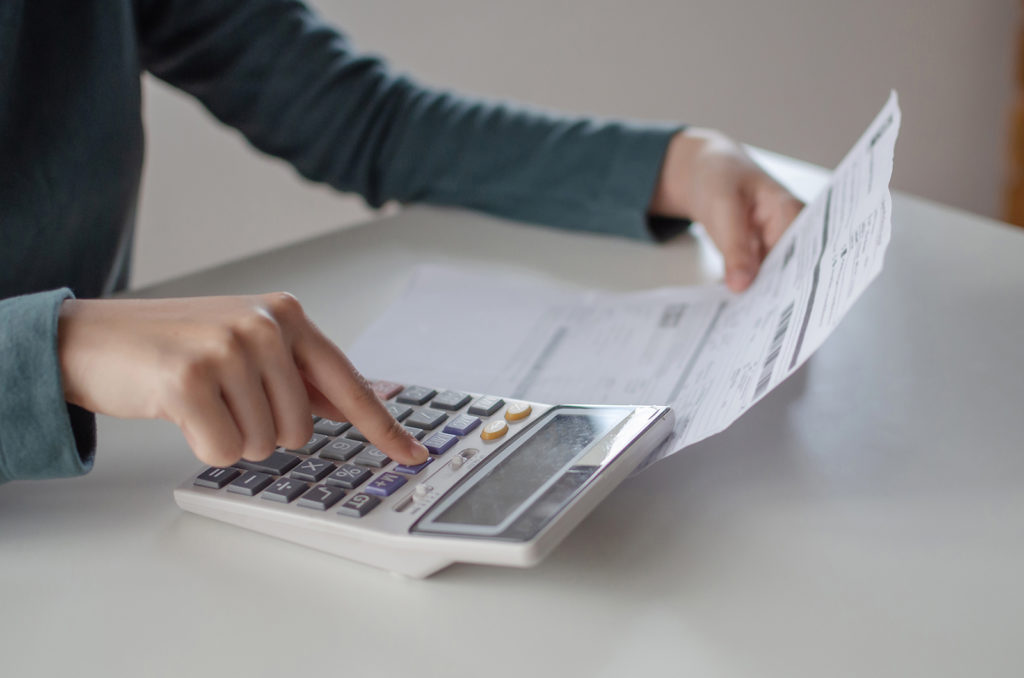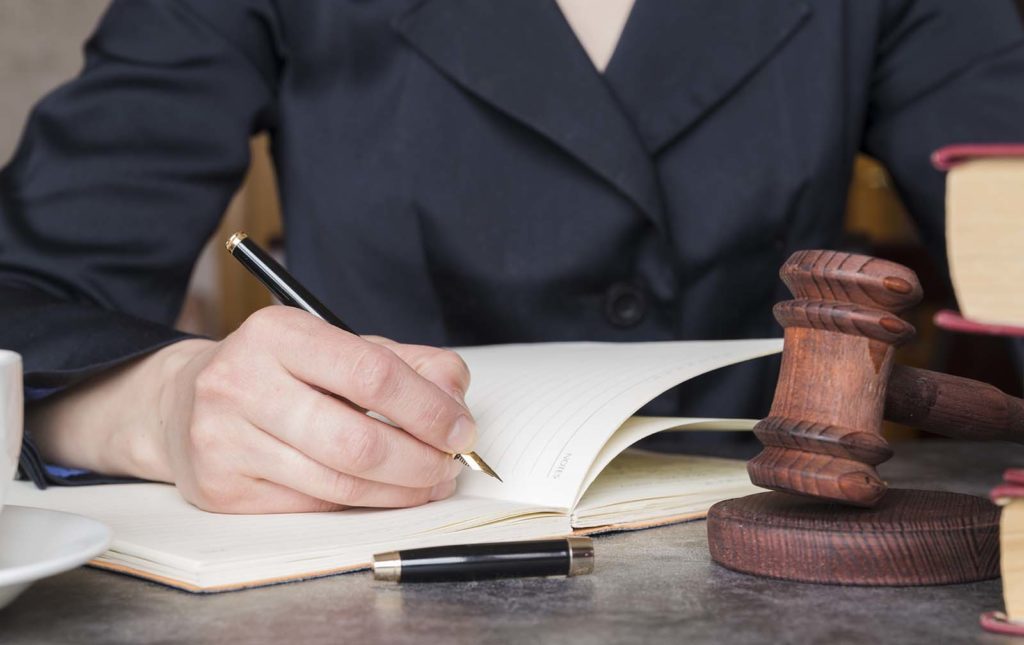When you’re struggling with debt, it can sometimes feel as if there’s no way out. Fortunately for those faced with a difficult financial situation, there are options which may help to make dealing with it a more manageable process.
In this guide, we’ll discuss how and where you can get help, potentially write off debt from the total sum owed to your creditors and generally improve your financial situation.
What does it mean to write off debt?
Put simply, when a debt is written off it means that you are no longer liable to repay the money that is owed to a lender, company or individual from which you borrowed it (the ‘creditor’).
Can you write off debt?

In certain, limited circumstances, yes. Whilst having your debts written off may sound like an ideal solution to financial issues, it is not possible in all cases and is in fact quite uncommon. For most people, borrowings can only be written off by virtue of an insolvency solution – which is more complicated than a creditor simply closing an outstanding account.
There are also some situations in which a creditor may be moved to write off sums on compassionate grounds. Examples of when this might happen include cases where a debtor is terminally ill or otherwise unable to work due to illness. If you are temporarily struck down by illness and likely to make a recovery at some point in the future, a creditor may also agree to stop chasing you on the agreement that you will settle what is owed once you are able to start earning again.
In cases where you are permanently unable to work, or if you are terminally ill and approaching the end of your life, it is likely that you will have to provide a creditor with proof of your circumstances. Whilst the requirements of each lender vary, this proof might include such things as a report from your GP or another official document confirming that you are unable to work. It is also likely that you will need to demonstrate that you don’t have any other means of clearing your debt – for instance, a well-stocked savings account that could reasonably be put towards a settlement.
Having part of your debt written off
In select circumstances, you may be able to agree with your creditors to make a ‘full and final settlement’. In plain terms, this is an agreement to make a lump sum repayment to settle part of your debt in exchange for writing off the remainder. A full and final settlement offer is usually only an option for those who happen to come into some money, have some savings, or an offer from a friend or family member to make a lump sum payment.
Debtors should keep in mind that creditors will look at full and final settlement offers critically. The sum offered must be substantial enough to make it worth their while and they will often balance this out against the ongoing costs of chasing you for 1what is owed along with other forms of debt recovery. If you are considering making a full and final settlement offer, it is also possible that your creditors will request an explanation as to why your financial circumstances are unlikely to change for the better in the future.
How to write off debt through insolvency?

Insolvency may sound like an intimidating prospect, but it can help those who meet the criteria to exit the cycle of debt. If you don’t reach the relatively high threshold grounds for having your debt written off on a compassionate basis, you may also consider whether or not you meet the criteria for an insolvency solution – either via an Individual Voluntary Arrangement (IVA), a Debt Relief Order (DRO) or by declaring yourself bankrupt.
Individual Voluntary Agreement (IVA)
A common insolvency solution is known as an Individual Voluntary Agreement (IVA). Akin to a formal repayment plan, an IVA is only possible for those who have no other reasonable way of satisfying their debts and usually lasts for 5 or 6 years. The term of an IVA is partially dependent on whether the person is a homeowner who can release equity from their property in order to satisfy part of the debt.
An IVA must be set up by a qualified insolvency practitioner (usually a solicitor or accountant) and they will charge fees of their own which will be added to the total sum of what you owe. As a court-approved ‘repayment plan’, an IVA will kick into effect once the creditors holding 75% of your total debt agree to it.
Debtors are required to make repayments directly to the insolvency practitioner who will then distribute the funds to creditors whilst retaining a handling fee. At the end of your IVA’s agreed term, you will no longer be required to pay the remainder of the outstanding debt. Note that if you receive a windfall (for instance an inheritance) during the course of an IVA, it is likely that you will be expected to use this in part or full repayment.
Keep in mind that if you enter into an IVA, your name will be added to the Individual Insolvency Register and will only be removed three months after your agreement has reached its end. This register is a publicly available resource and may impact your ability to access other forms of borrowing, for example car finance.
Debt Relief Order (DRO)
A Debt Relief Order is another insolvency solution available to those with debts that total no more than £20,000. The effect of a debt relief order is that all included repayments will be frozen for a period of 12 months and no additional interest will accrue. If your financial circumstances have not changed by the end of the order period, you will no longer be liable for the debts covered by relief order.
There are lots of criteria that you must meet in order to qualify for a relief order, and outside of the £20,000 total debt limit these include:
- that you do not own your own home or have other major assets or savings valued at £1,000 or more that could be sold and put towards your debt;
- that your monthly spare income totals no more than £50 after paying for usual, essential household expenditures; and
- that you have not sold assets at an undervalued rate within the last two years (for instance selling a car worth £5,000 to a friend for £1,000).
If you do meet the relevant criteria, you will need to contact an expert debt relief order adviser who will assist you in making an application. You will be charged a £90 fee and you cannot successfully apply for a DRO if you have had another within the past six years, or if you are currently going through any other insolvency procedure. It is also worth noting that a DRO will remain on your credit file for six years which may severely impact your ability to access any other forms of lending.
Whilst a relief order can be helpful and practical solution for some, keep in mind that even a small change to your financial circumstances could lead to you becoming liable to repay the entire debt owed once more. If you begin to have more than £50 a month in spare income after paying for essential monthly costs, you may well have to pay back all that is owed.
Bankruptcy

Many people will be familiar with the term bankruptcy, but few will be aware of the finer details. Bankruptcy can have a significant impact on your life, yet it is still a helpful solution to certain debt-related issues. If you are declared bankrupt, many kinds of unsecured debts will be written off enabling you to make a fresh start. When your bankruptcy is discharged (usually after 12 months) you will no longer have to repay eligible debts, however, certain credit such as student loans and court fines are not covered and will still be payable.
Whilst you can apply for bankruptcy yourself, it is also possible for one of your creditors to ask a court to make you bankrupt even without your permission. For this to be considered, you must owe at least £5,000. Bankruptcy can have very serious consequences and may not be the most practical or appropriate solution for all debtors. In the table below we have set out a non-exhaustive list of some key advantages and disadvantages of bankruptcy:
| Advantages | Disadvantages |
| You will no longer have to deal with your creditors or their debt collection methods. | It can be difficult to take out any further credit and your credit score will be affected for 6 years. |
| You are permitted to keep exempt goods – including everyday household items, tools required for your work, a car if you need it to get to work provided it is worth less than £2,000. | If you own your own home it may have to be sold, depending on its value after secured amounts are repaid. Your landlord could end your tenancy and some of your possessions may have to be sold. |
| You can keep reasonable amount of income for living on. | If you have a certain amount of surplus income, you may have to make payments towards your debts for 3 years. |
| You won’t have to pay back debts covered by bankruptcy. | Your bankruptcy will be added to a publicly available register unless otherwise ordered by a Court. |
It should be clear to anybody considering bankruptcy that it comes with significant consequences that will affect debtors in different ways. Homeowners, for instance, are likely to lose their property, but this is not guaranteed.
If during the course of your bankruptcy your financial situation changes, you may be required to make contributions towards the repayment of your debt. This typically happens if a debtor has more than £20 monthly disposable income after essential expenditures, and can be voluntary (as part of an Income Payments Agreement or mandatory as required by court order (as part of an Income Payments Order).
What debts can’t be written off?
Whilst insolvency has the potential to write off most forms of debt, there are some that cannot be dealt with in this way. You can use an insolvency solution as a means of managing eligible debt, but you will still need to find a way to settle any others ourself. Debts that fall under this category include child maintenance fees, TV license arrears, criminal fines and any money accrued in respect of a fraudulent activity.
What is the best way to clear my debt?
Unfortunately, there is no one-size-fits-all debt solution that works for everyone. The best way to clear your debts will be highly dependent on your own personal circumstances and what works for one may not be relevant to another. A debt management plan could be an option to some but not others, for example.
If you are struggling with money, it is crucially important to seek the help of a professional who can help you to work through your financial issues and seek out solutions that work for you.

